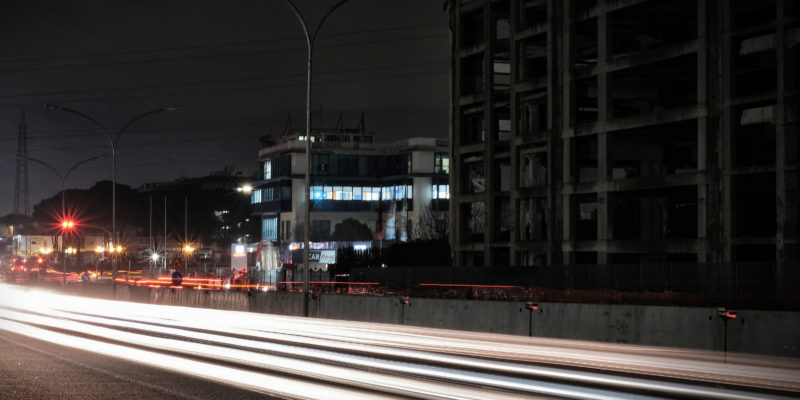1. Fear of “migrant hunt” still high in Macerata
Luca Traini’s shooting rampage against migrants highlights the rise of fascist groups in Italy, the Guardian says: negative narratives on migrants, the spread of fake news and Italy’s fascist history have led thousands of people to side with the far right. Online hate speech, as we have seen clearly, can result in murderous acts of violence. This is why scholars and writers have called on TV and print news editors to do a better job of fighting toxic narratives. Meanwhile, in Macerata, with fear of a “migrant hunt” still high, human rights groups are continuing their work in the face of intimidations. Redattore Sociale has interviewed those in Macerata who are still welcoming migrants.
2. The security bill, seen from Como
The city of Como is witnessing a division that runs across all of Italy, opposing those who envision a country founded on ideas of order and safety to those who seek to build community in the name of integration and welcoming. Luigi Mastrodonato reports from Como in an article for Internazionale, analysing the right wing’s platform of safety and decorum, while Gabriele Santoro reminds us of a time when Italians were seen as bandits and how, for decades, the foreign press depicted us as criminals.
3. Conditional welcome: how migrants end up in ghettos
According to Doctors Without Borders, Italy is going through a legislative process of making migrant reception centres a concession more than a right. Annalisa Camilli wrote in Internazionale about the 10,000 people forced to live in ghettos and degraded areas “with limited or no access to essential services and medical care”, according to the recently published report “Fuori campo”. Eleonora Camilli and Giacomo Zandonini have interviewed for us some of the people living in a former penicillin factory in Rome. Meanwhile, Caritas Italia has issued a call for transparency on the data on the number of refugees in Italy.
4. How the issue of immigration could upend the Italian election
In the lead-up to the election in Italy, many commentators, including foreign ones, are wondering whether immigration – an issue that was amplified in the wake of the shooting in Macerata – could affect the outcome of the election. An interesting article by Ferruccio Pastore in Politico shows us how the Italian’s fear of migrants is not always linked to a spike in arrivals, but reached its peak in 2007, when irregular sea crossings were at almost historic low. Meanwhile, on February 8, 18 Catholic groups have presented a policy document on migration to be submitted to parliamentary candidates.
5. The transit camp system in Germany: all that glitters is not gold
“We are refugees, not prisoners”, declared the group of asylum seekers detained in the deportation camp of Bamberg, Upper Franconia, in a recent press statement. And yet the camp, currently accommodating 1,400 migrants and designed to push asylum seekers whose prospects to stay are poor to leave German “voluntarily”, is considered a model one in the German debate on immigration. Also from Bavaria comes the story of the al-Habab family, who fled Damascus more than a year ago: most Syrians coming to Germany only receive temporary protection , complicating efforts to integrate them.
6. Among the Rohingya refugees who are helping fight diphtheria
Going shelter to shelter in Bangladesh refugee camps, volunteer health workers from the Rohingya community are working every day to contain diphtheria. Since violence erupted in the Maungdaw area in western Myanmar, almost 700,000 Rohingya women, children and men have fled to Bangladesh, most seeking shelter at settlements where at least 5,000 cases of highly infectious respiratory disease have been reported. Last December, Open Migration met with some of them at the Kutupalong camp, near Cox’s Bazar.
7. The Israeli government plans to deport 20,000 African migrants
The government plan to send 20,000 migrants back to Africa by 2020 has sparked controversy, both within Israel and in the international community. Israeli newspaper Haaretz wonders about Israel’s duty, as a nation founded by refugees fleeing persecutions, towards migrants who are not Jews. The Washington Post has interviewed Israel’s Interior Minister Aryeh Deri.
8. Failed bipartisan deal to protect young immigrants caused a temporary government shutdown
The number of migrants who died near the US-Mexico border rose in 2017, even as the number of attempted border crossings fell according to the UN. Meanwhile, failure among Democrats and Republicans to reach a bipartisan deal on the DACA caused a temporary government shutdown. Nancy Pelosi, the minority leader in the House of Representatives, spoke for eight hours on the floor, making it the longest speech on record in the chamber. Eventually, Congress passed the funding bill.
9. No corner of the world is immune to slavery
February 8 is the International Day of Prayer and Awareness Against Human Trafficking. From Libya to Bangladesh, from women forced into prostitution to children doing forced labour, there are more than 40,000 victims of “modern slavery” around the world.
10. In Spain, the Tarajal tragedy is still unpunished and migrants are still being pushed back
Four years have passed since the Tarajal tragedy, near Ceuta, when the Spanish Civil Guard violently repelled a group of migrants swimming towards the beach using rubber bullets and tear gas, resulting in at least 14 deaths. Today, the NGOs are still calling for proper investigation and the end of pushbacks in Spanish enclaves.
Foto di copertina di Giacomo Zandonini









